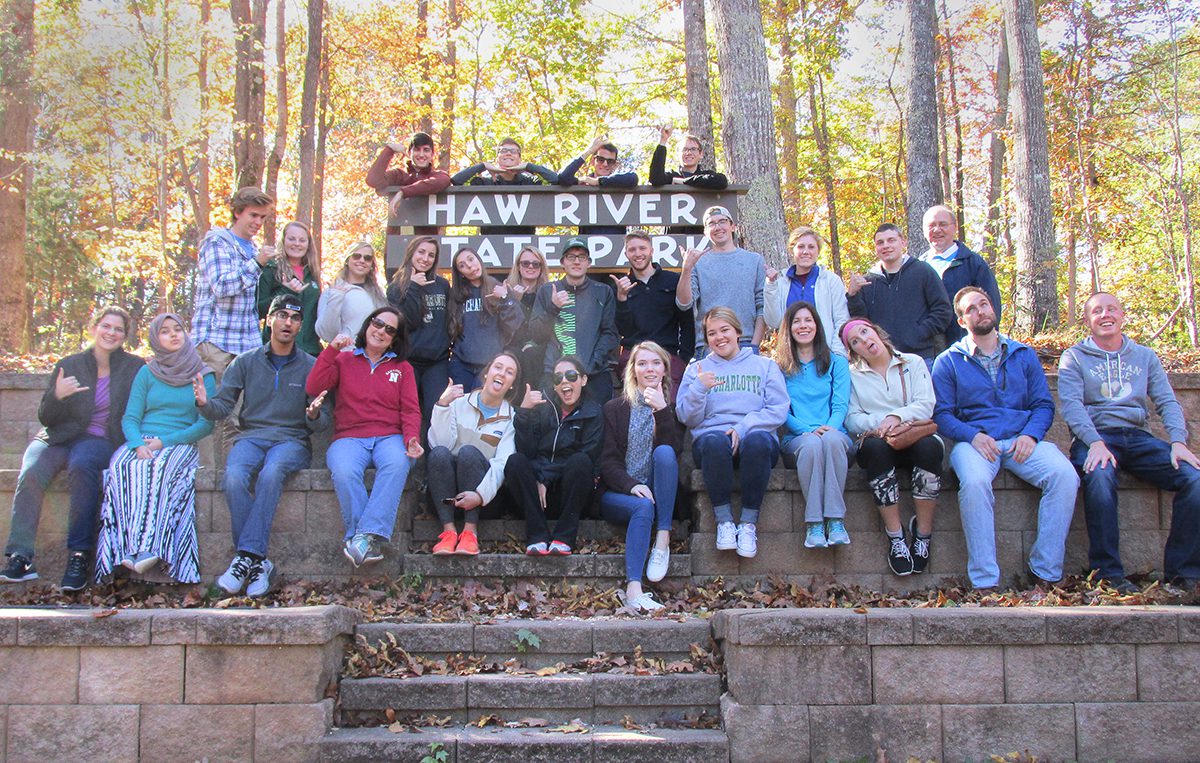Engineering Leadership Academy
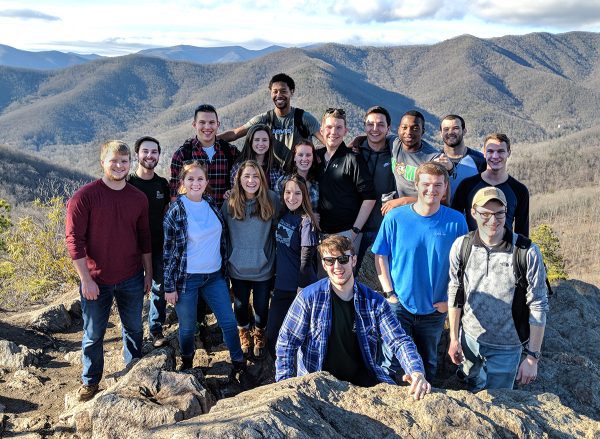
For 18 years, the Lee College of Engineering’s Leadership Academy has been helping undergraduates learn the skills, values, mindset and perseverance it takes to be effective leaders. The program has been incredibly successful, with its graduates becoming top leaders in their fields, and some of them now coming back to help the next generation of Leadership Academy students.
The college started the Leadership Academy in 2002, to help fill the need for a program that could teach the soft skills involved in leadership, such as communications, ethics, conflict resolution, diversity and strategic planning. “It came about from talking with employers, who said they would like to see students develop more leadership skills,” said Dr. Cathy Blat, who was one of the initial planners of the program and is now the college’s Assistant Dean for Student Experiences.
A brainstorming weekend was held to come up with ideas for what the program should be like. The retreat format worked well, so the planning team decided to make the program a series of retreats, capped by a final project.
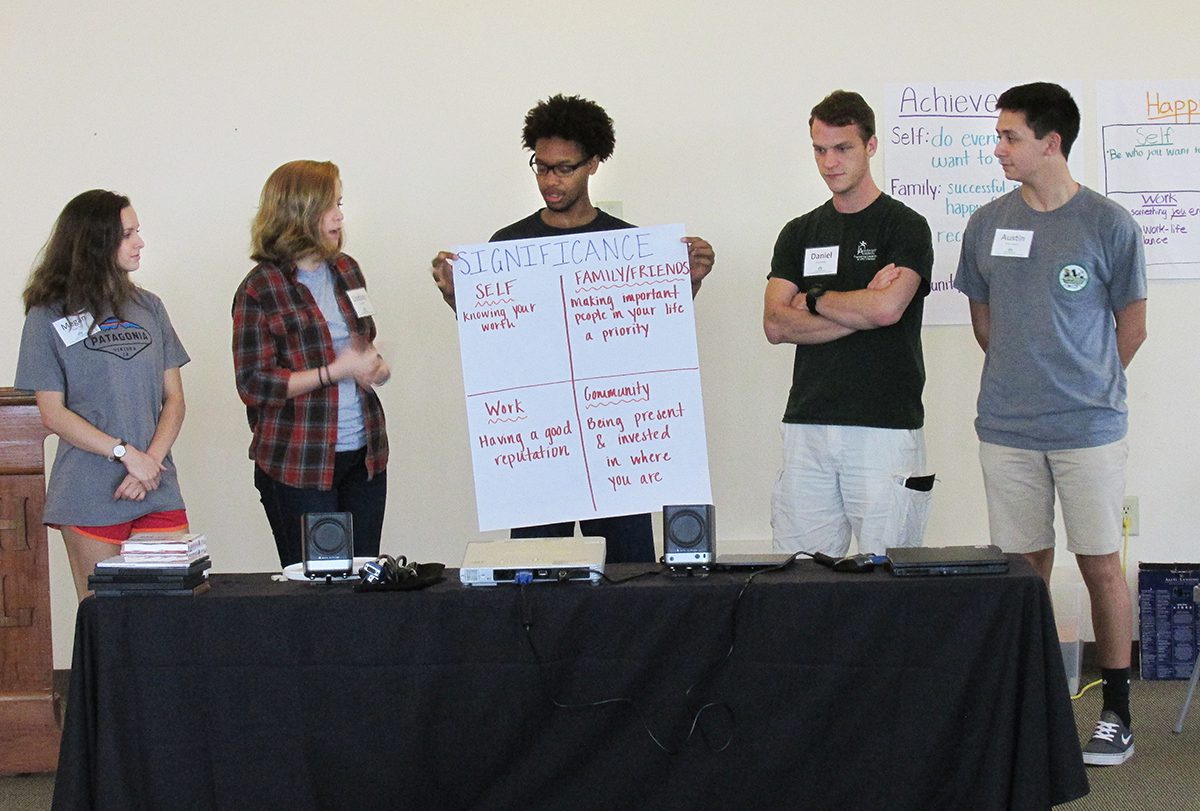 “We saw the need to get the students away from campus,” Dr. Blat said. “We wanted to make the program very interactive. We didn’t want them just sitting in lectures.”
“We saw the need to get the students away from campus,” Dr. Blat said. “We wanted to make the program very interactive. We didn’t want them just sitting in lectures.”
It was gratifying to see how well the students responded to the format, Dr. Blat said. “I was surprised at how well they responded. They were super engaged. We got them out of their comfort zone, but they did well.”
Don Blackmon was first involved with the program as one of its advisory board member in 2003, while he was still working at Duke Energy. Now working for the college’s Office of Student Development and Success, Blackmon has been the director of the program since 2011.
“The Leadership Academy provides students with soft skill that they don’t necessarily get in the classroom,” Blackmon said. “And they have to do the program on their own time. They don’t get any class credit. They have to make time for it in their already busy engineering schedules.”
Each cohort of the program accepts between 18 and 24 students, most of them sophomores and juniors. The students submit applications, are interviewed, and a then committee selects that year’s members.
“We are looking for variety and diversity in the students selected,” Blackmon said. “We want students who say they really want to learn more about public speaking, leadership and working in groups.”
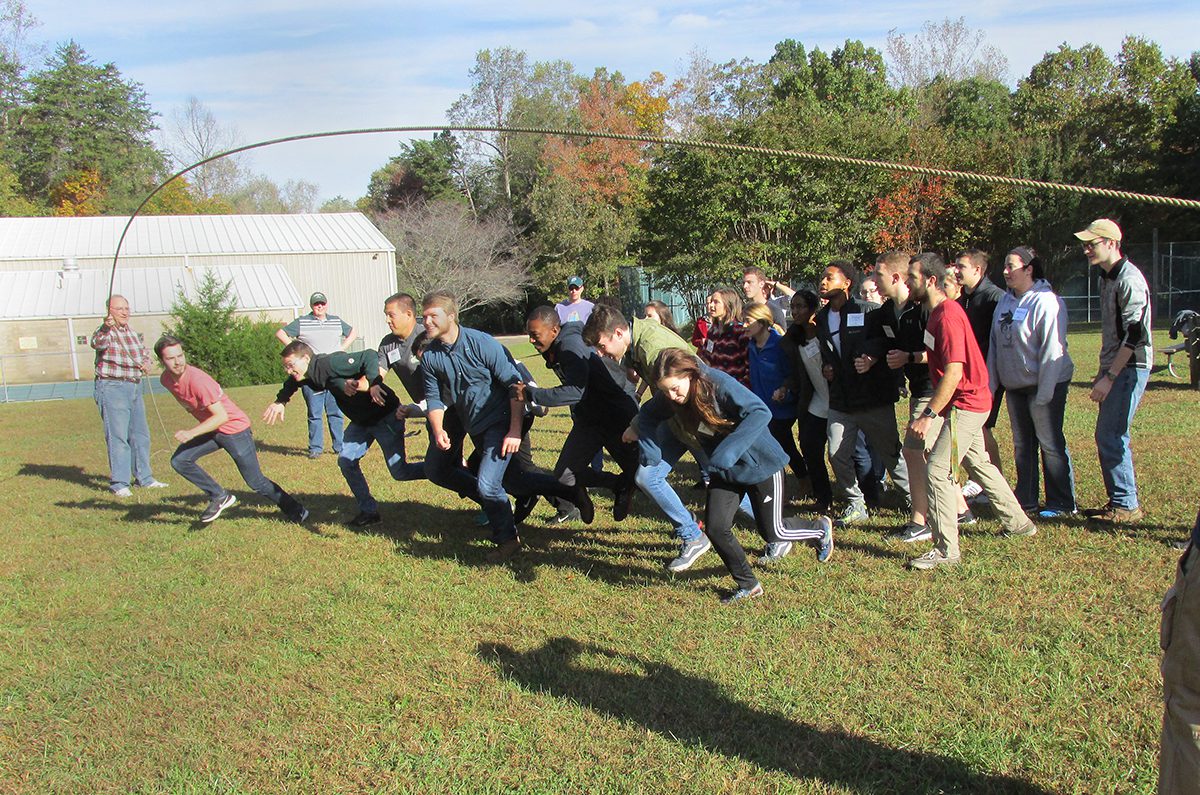 The program is made up of five modules spread out over the two years. The weekend retreat topics include defining leadership; morals, values and ethics; crucial conversations; and strategic planning for life. The fifth module is a capstone project that puts into practice everything they have learned.
The program is made up of five modules spread out over the two years. The weekend retreat topics include defining leadership; morals, values and ethics; crucial conversations; and strategic planning for life. The fifth module is a capstone project that puts into practice everything they have learned.
“We want them to find meaningful team projects,” Blackmon said, “and over the years there have been many. We have had multiple STEM education projects, intercity neighborhood library boxes, an owl habitat for the Rapture Center, above ground flower and vegetable beds at the Veterans Hospital in Salisbury, food for the needy, and many environmental awareness and clean-up projects.”
A key component of the Leadership Academy is the involvement of industry mentors. These volunteers serve on the advisory board and participate in the weekend retreats.
“We want them to meet our students, and share with them the leadership traits they have learned over the years,” Blackmon said. “Many of the students have gone on to work for the industry people they have met during the program, at companies including Carolina CAT, AREVA, Honda, Duke Energy, Freightliner, Trane and more.”
One of these industry representatives is Joe DeVoe, a current member of the Leadership Academy advisory board. He is also a UNC Charlotte Electrical Engineering alumnus, and was a member of the 2004-2005 Leadership Academy cohort. He is now a Responsible Engineer for the Plant Modifications Group at Framatome.
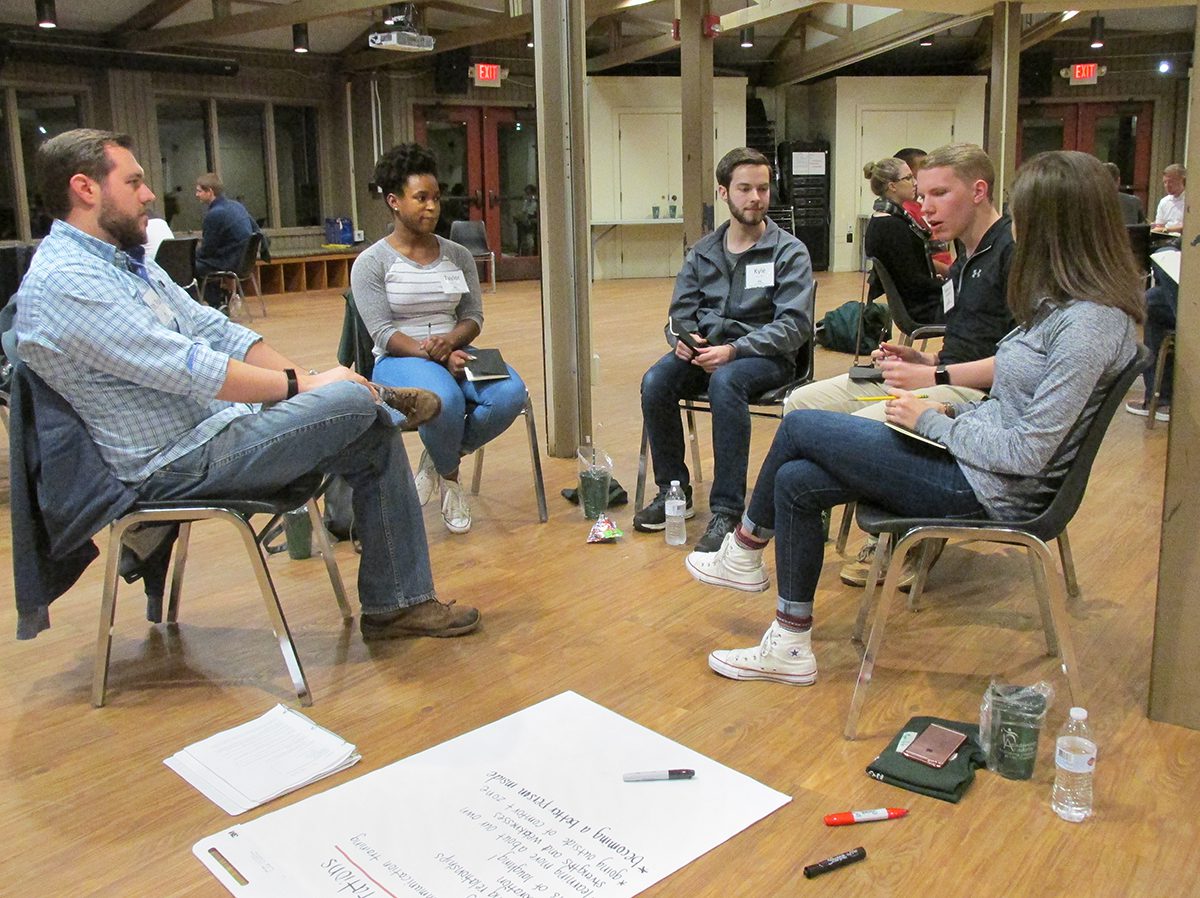 “I was just getting out of the Marine Corp and looking for some comradery, when I decided the Leadership Academy would be a good way to meet some people,” DeVoe said. “It was too. I made some life-long friends there, who I still keep in touch with and who I am also involving in the Leadership Academy.”
“I was just getting out of the Marine Corp and looking for some comradery, when I decided the Leadership Academy would be a good way to meet some people,” DeVoe said. “It was too. I made some life-long friends there, who I still keep in touch with and who I am also involving in the Leadership Academy.”
While in the Leadership Academy, DeVoe said got the most out of the insights from industrial executive mentors about ethics. “There are a lot of ethical things you don’t think about being involved in engineering, until they are presented to you. What is right and what is wrong comes into play on an almost daily basis. These are things that are not taught in college, but are expected in the profession, and students don’t always realize that.”
DeVoe said he also learned a lot because of the diversity element of the program. “The diversity is very intentional, and gives you a taste of what you will experience in your career,” he said. “It’s a really important element, because people from all over the world are different and have different experiences, and you have to be able to work together.”
Katie Davis, the Vice President of Engineering Excellence at Ingersoll Rand has been involved with the Leadership Academy for the past four years. “Don Blackmon asked if I would be on the advisory board,” she said. “It sounded like a great opportunity and program to be involved in, so I said ‘yes’. Engineering schools provide great technical education, but don’t always teach the soft skills that the Leadership Academy can.”
Davis has taken part as a mentor on the weekend retreat modules. “The retreats help develop interpersonal relationships,” she said. “They teach how to lead in situations where there is no leader, how to accept challenges, and how to perform ethically. Some of the students start off super shy, but when I meet them later they have increased their confidence, and their ability to communicate.”
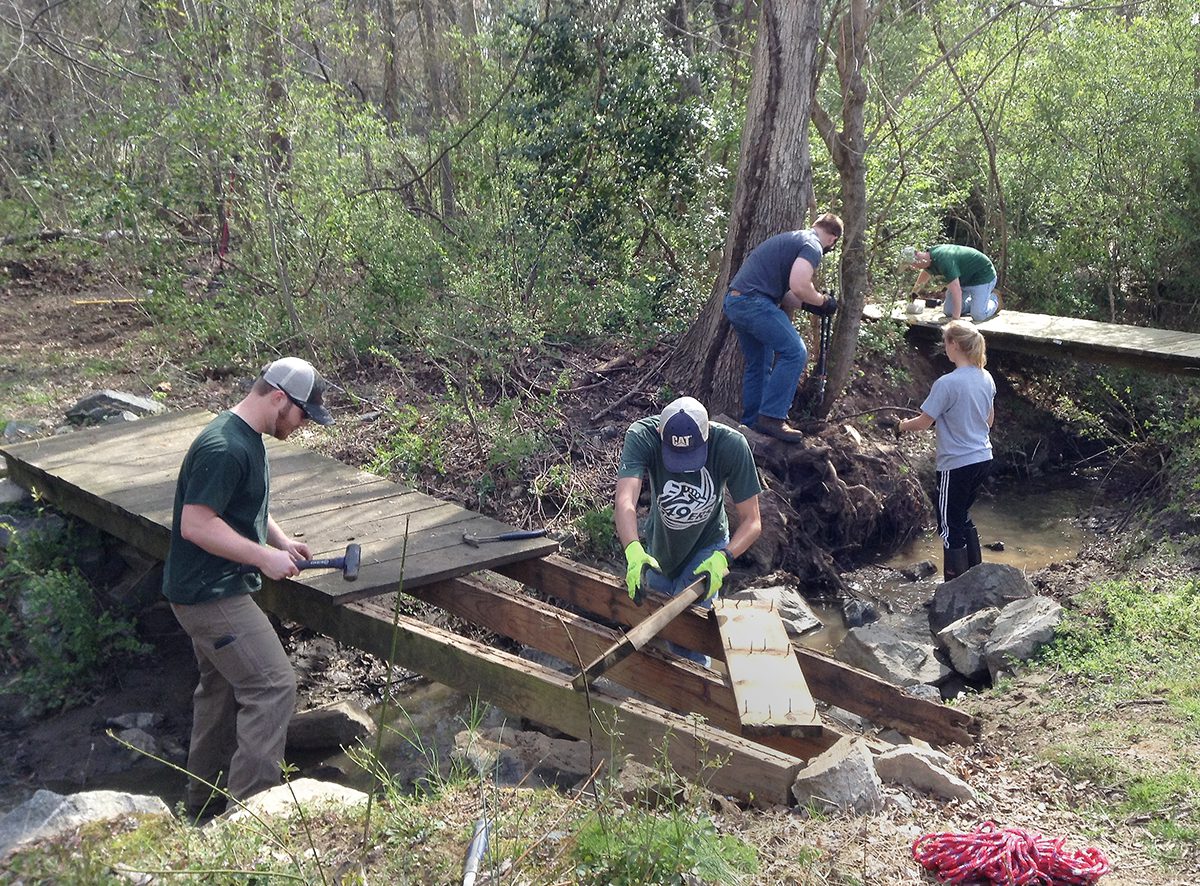 The projects provide an amazing opportunity for student to work on the soft skills they have learned, Davis said. “The soft skills are really important to becoming engineering leaders someday. I have found that graduates of the Leadership Academy have those abilities.”
The projects provide an amazing opportunity for student to work on the soft skills they have learned, Davis said. “The soft skills are really important to becoming engineering leaders someday. I have found that graduates of the Leadership Academy have those abilities.”
Davis has seen the benefits of the program firsthand, having met two students who applied for and got internships at her company, and then went on to get fulltime jobs there. “They have been totally awesome,” she said, “and have great leadership skills. I think the Leadership Academy is a great program.”
A junior in Mechanical Engineering Technology, Micah McKenzie is currently in his second year in the Leadership Academy. Having met other students in the program, he decided to give it a try. “I really liked their leadership traits, and wanted to grow in that,” he said. “I also really liked the values the program seeks to develop in students.”
Taking part in the weekend retreats has been an eye-opening experience, McKenzie said. “Going on the retreats and seeing up close how people operate and how they lead has been great. Especially the module on crucial conversations. I learned how to have hard conversations, and through them build someone up, not tear them down.”
Also valuable has been learning more effective communications. “I learned to analyze what I am communicating, and determine whether what I think I am saying is what others are hearing,” McKenzie said. “The experience that industry volunteers brought to this was invaluable. It was also great to make networking connections with them for the future.”
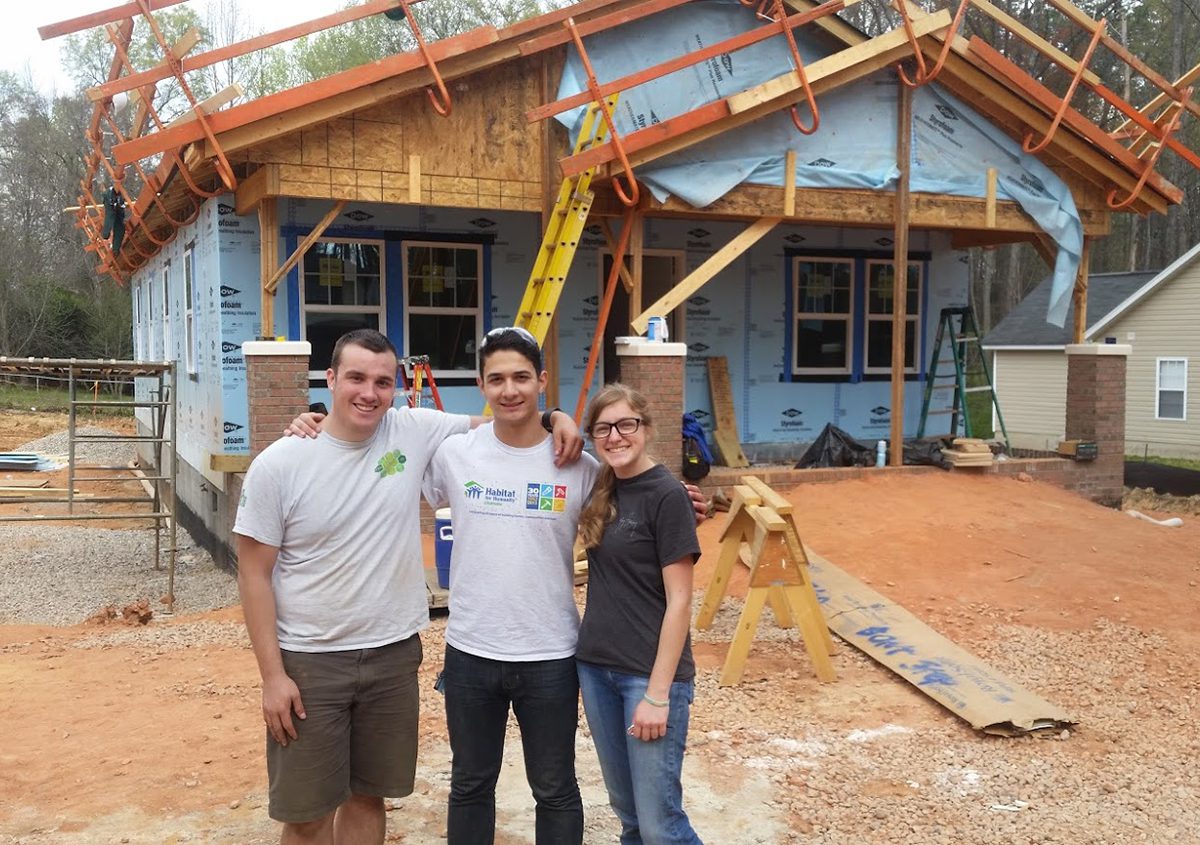 Overall, McKenzie said he is very glad he made the time to participate in the Leadership Academy. “I’m actually surprised by how fast it has gone by,” he said. “I’m looking forward to putting into practice what I’ve learned.”
Overall, McKenzie said he is very glad he made the time to participate in the Leadership Academy. “I’m actually surprised by how fast it has gone by,” he said. “I’m looking forward to putting into practice what I’ve learned.”
The Leadership Academy has changed and improved over the years, based on feedback from students and industry mentors, and based on a changing work environment. Some aspects have been tweaked, and some elements, such as crucial conversations, have been added.
“After 18 years, the program has turned out better than I envisioned when we first started,” Dr. Blat said. “It has had a much bigger impact than I imagined. It has led to students learning leadership skills, but has also led to them getting jobs. Those students have become leaders in their fields, and many are now back and involved in the program, giving back to what they felt was valuable from their college career. It has been a wonderful continuing evolution.”
